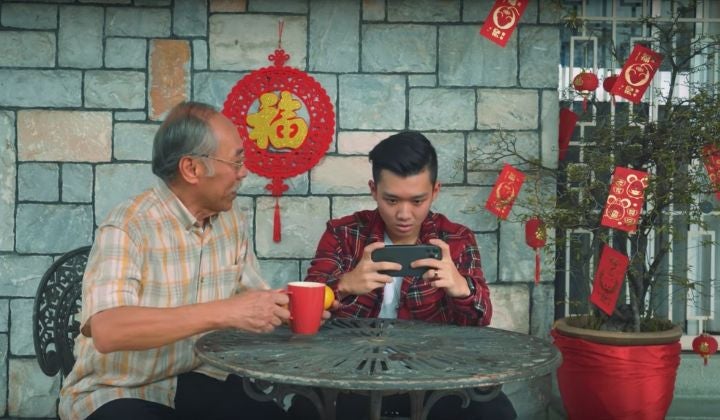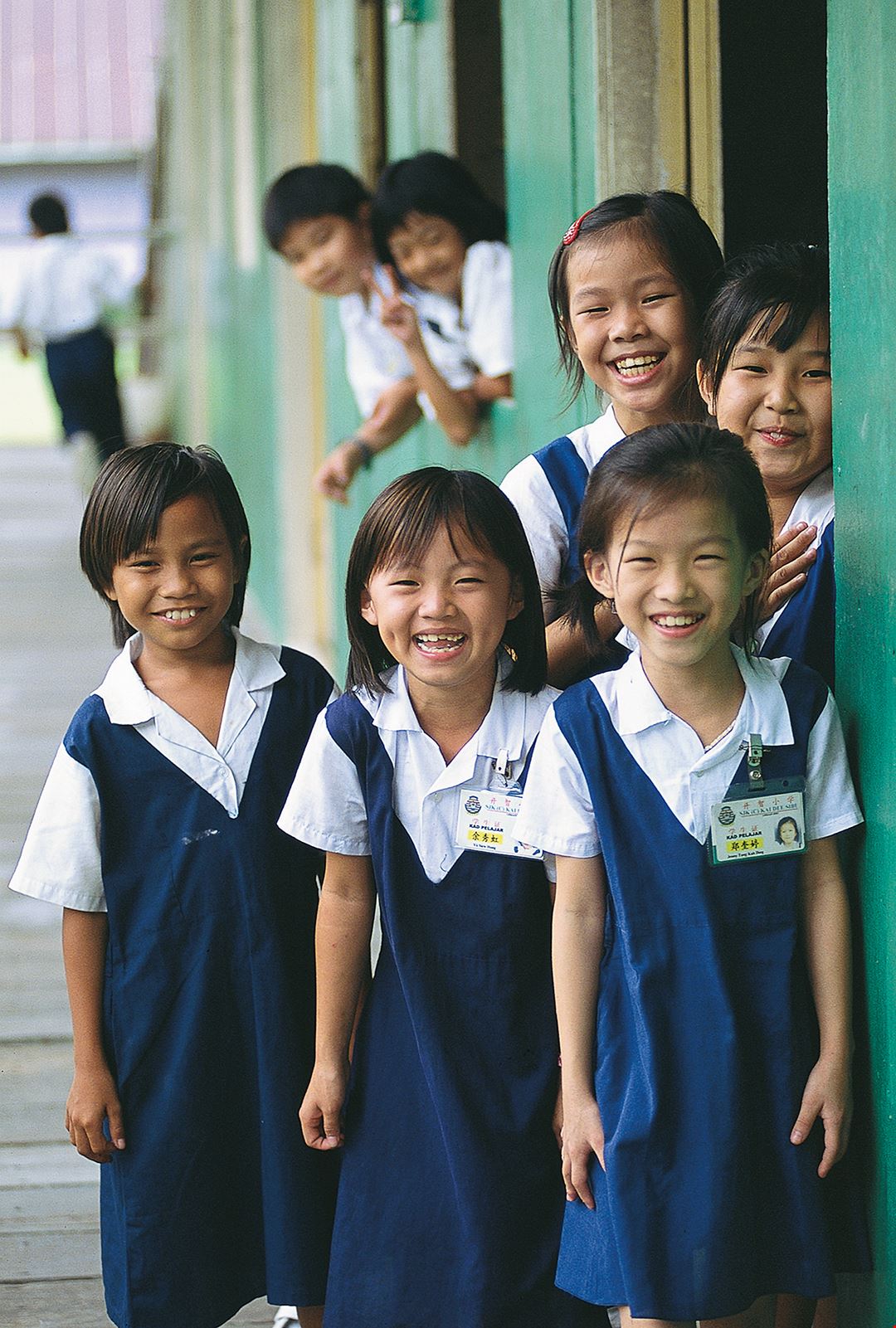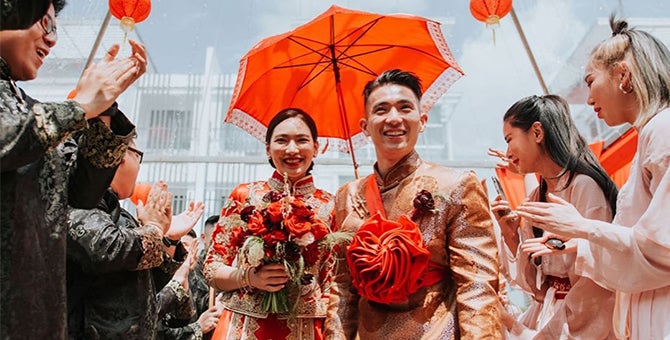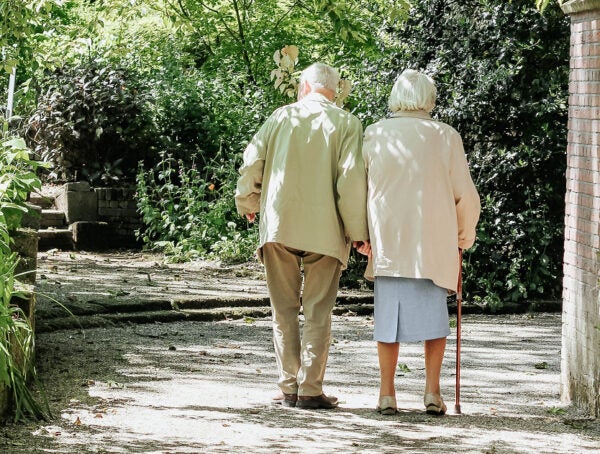Disclaimer: In Real Life is a platform for everyday people to share their experiences and voices. All articles are personal stories and do not necessarily echo In Real Life’s sentiments.
We’ve all seen the annual Chinese New Year (or any festival, really) videos online. They tend to have a common theme: kids playing on their phones and getting slapped with reality when they’re forced to connect with the elderly in the family.

I find them super relevant not just because it’s something that I see my younger cousins do, but also because it’s something that I’m guilty of doing too – though it’s not as severe in my case.
There is, however, one major difference between how my cousins and I play with our phones during Chinese New Year.
I have no doubt that they are glued to their phones because they are preoccupied with the worlds of PUBG and TikTok. For me, I assume the “emergency position” of being busy on my phone to avoid the annoying interrogation sessions that happen every Chinese New Year.
The questions we get asked during Chinese New Year change as we grow older:
In school

During this phase, we usually get questions about our studies: “How many A’s did you get for UPSR/PMR/SPM?” For those in college and university, it’s always about our career choice or – for kepoh uncles and aunties – if we’ve started dating.
After entering the workforce

Memories of these questions are probably fresher for most of us – because we just heard them last year.
“Got boyfriend or not?”
“Why until now no boyfriend?”
“Your job got earn money one ah?”
After marriage

Not that I’ve personally experienced this, but I’ve seen it happen to my married cousins:
“When are you guys going to have kids?”
“(To the girl) Put on weight already. Second kid on the way ah?”
“When are you going to give your parents grandkids?”
Then there’s the unsolicited advice, too

Sometimes, answers to unwelcome questions are followed by equally unwelcome advice or opinions. I was once told that I wouldn’t be single had I eaten less and spent less time in school.
I’m pretty sure there are many out there who have had worse said to them. As a result, some of us resort to pretending to be busy, while others opt out of family gatherings. See, it’s really not our fault sometimes.
But what if all these questions and advice come from a place of care?

It doesn’t sound believable, and I’d probably share the disbelief if anyone used this reasoning to explain why our elders do what they do. Until I caught myself asking my younger cousins similar questions.
It’s understandable that the elderly have a harder time communicating than us Gen Zs or Millennials. Sometimes when their communication skills are limited, it’s not a surprise that they resort to the only things they know how to express.
There’s an age gap of 10 years and more between my younger cousins and me. We don’t see each other often – maybe four times a year – and when we do, I struggle to continue our conversations after the first “Hi, how are you?”
Naturally, I use things related to them as conversation starters, like “How’s school?” Upon realising that two of them had just received their SPM results, I continued with “How was it?” Of course, I have to end the conversation with the usual “Must study hard and study smart, ok?”
The point is that our elders are trying to connect with us by asking after what’s happening in our lives – and what can be a more universal topic than studies for those who are students or work for young adults?
Admittedly, some of the ways our older relatives use to show they care may come off the wrong way. Some questions may be too personal, and some advice isn’t tactful. But we can all agree that our elders are not purposely asking or saying things to hurt us – they are merely expressing their care and love for us through questions and advice.
All the questions and advice you get during CNY come from a good place
And you probably won’t realise this until you become one of those uncles or aunties, when you’re the one asking questions.
Our elders have good intentions, just that these questions and advice aren’t always conveyed diplomatically. The least we could do as youngsters is to show them respect.
For this Chinese New Year, please don’t go into panic mode the moment you see your uncles and aunties. Stow away all unhappy thoughts for a while and put your electronic devices on silent mode. Should an overly personal question or unpleasant advice pop up, we advise that you gently deflect it by commenting on how good the food is.
In Real Life wishes everyone a Happy Chinese New Year!
For more stories like this, read: My Husband’s Parents Didn’t Invite Me For Chinese New Year For 10 Years Because I Was Indian and 6 Things Your Relatives Ask During Chinese New Year
You might also like
More from Real People
‘A RM100 fee cost a company 5 years of revenue’ shares M’sian
This story is about a Malaysian who learned that bureaucracy can be defeated simply by not arguing with it.A billing …
‘I quiet-quit, upskilled, and tripled my salary,’ shares M’sian engineer
This story is about a Malaysian who learned that loyalty without leverage leads nowhere in the corporate world.After years of …
‘I did everything right, and it still wasn’t enough’ shares M’sian graduate
This story is about a Malaysian graduate navigating big dreams in a job market where a degree no longer guarantees …


















